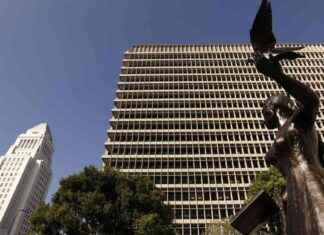Engaged in the biggest economic reforms of the revolutionary era, Cuba remains in the shadow of Castro, with a president who shows no signs of change
Pedro Sánchez will visit Cuba, the first journey of a Spanish president in 32 years
Pedro Sanchez is planning an official visit to Cuba as that of Felipe Gonzalez, 32 years ago
The Cuba that received the past century, the Kings Juan Carlos and Sofia swept down the pain reflected by Reinaldo Arenas in ‘Before sunset’, is crushed by the Special Period, but speeding up their puffs of survival after the saving emergence of Hugo Chávez in Venezuela.
Nearly two decades later, the Cuba which will be the week that comes to Pedro Sanchez is the main character of the novels of Leonardo Padura, full of aches and convicted to move forward. So similar and so different in its paradox endless.
“Pedro Sanchez is going to find a country engaged in major economic reforms of the revolutionary history, with a greater role for the market and a growing social diversity. At the same time, with the continuity of the political regime in spite of the amended Constitution. A most aged country with a population migrated active in their economic processes,” sums up the historian and political scientist Armando Chaguaceda.
“A country that has the shadow of the Castro, converted, both Fidel and Raúl, two inspectors of morals. One, as dust, from the rock of Santiago de Cuba, and the other to the front of the Communist Party of Cuba (PCC) and leading the organized vanguard of the nation according to the article 5 of the Constitution,” says the analyst Álvaro Alba.
The leader of the PSOE will arrive to the pearl of the Antilles, on the 22nd day to a few hours of the closing of the popular consultation of the new draft Constitution, to be voted upon in February of the next year. Three months of discussions and a pioneering process that included the cubans on the outside, and which preceded the final drafting of the Magna Carta.
More than seven million citizens, according to the Government, have given their opinion, especially in regard to the legalization of homosexual marriage, “the revolution within the revolution”, as they have named the authorities. The methods of choice, decent housing, and legal certainty has also attracted their attention.
“The Government has managed to place constitutional reform at the centre of the political debate,” says Arturo Lopez-Levy, a professor of the University of Texas. A country in transition “within a model is not democratic to the other, and a change, also, of its economic model towards a mixed economy where the market charges a much more important role,” he adds.
One of the more striking of the new Constitution, rejected by opponents and dissidents, is that they removed the idea of the construction of communism and reaffirms the socialist nature of the revolution, this time without a charismatic leader and with the separation of functions, but with the same hegemony of the CCP.
In the last three decades, revolutionary took effect in the island the dogma lampedusiano, so many times repeated, that everything changes so that everything remains the same. “In 1999, the Kings of Spain, they found a country in the process of economic reforms. Like right now, so we had liberalized spaces to the private sector and had introduced changes in agriculture and in other sectors which were later stopped. Today we do not know where to go the thing, with a president who is not of the historical but that also gives signs of wanting to or being able to change much by the time”, sums up the economist Pavel Vidal.
A political system almost identical to the 99, but with Miguel Diaz-Canel to the front, a president that for the first time does not carry the name of Castro. “Cuba needs capital and funding to grow the investment rates are low throughout the region, and to achieve a GDP growth that encourage more cubans to reform. In the past five years, the GDP has been on the brink of recession, coming out to float miraculously, with a growth rate of just 1.7 per cent,” warns Vidal. Private initiatives as emblematic as the famous palates.
In 1999, the Queen Sofia launched to fame, the restaurant, private Den, located in the building where they filmed ‘Strawberry and Chocolate’, immortal film of Gutiérrez Alea. In 2016, the family of Obama conquered the heart of Centro Habana for his dinner on the palate San Cristobal, creole cuisine of Spanish flavors. The turn is now of Pedro Sanchez, who will not fail in your appointment gastronomic History.
According to the criteria of
Learn more






